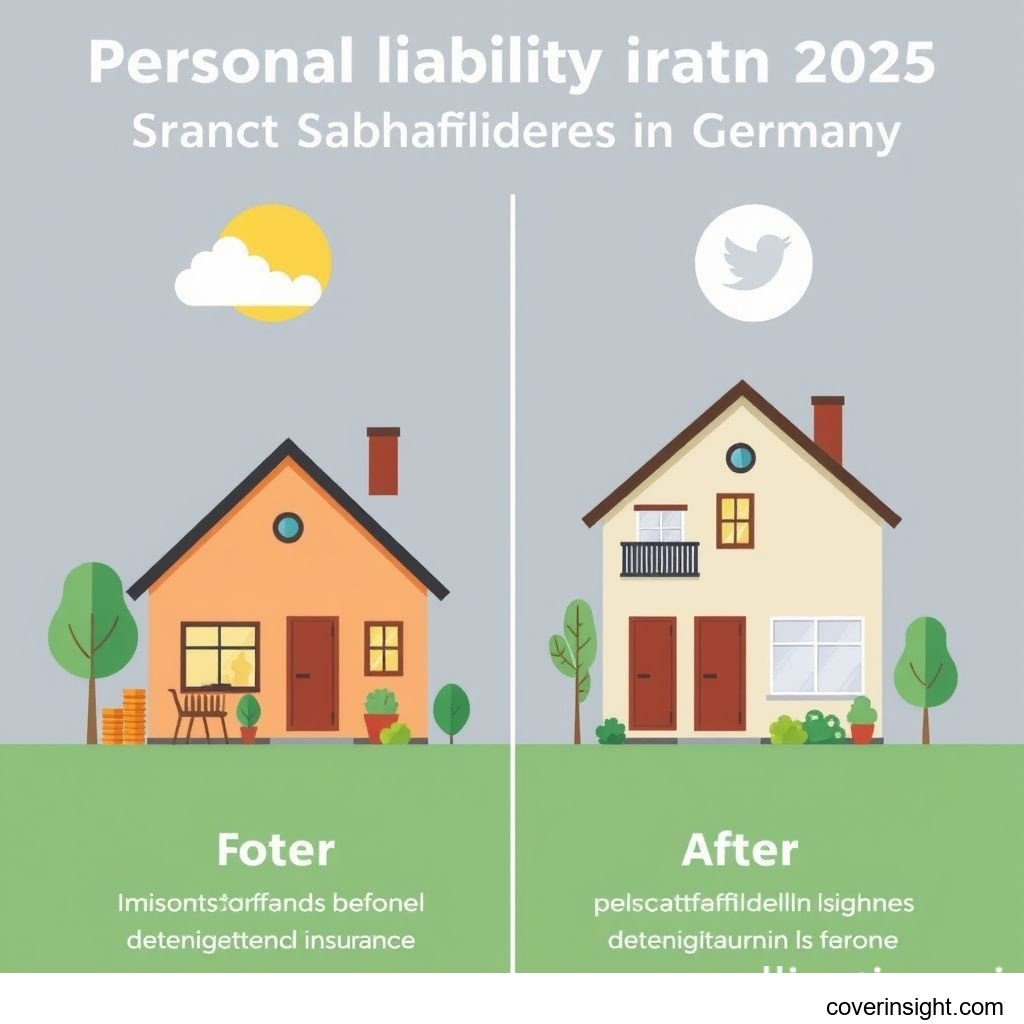Introduction
The discerning German consumer often looks to reputable sources for guidance, and few are as trusted as Stiftung Warentest. Their highly anticipated 2025 results for "Beste nachhaltige Versicherungen" (Best Sustainable Insurances) offer a crucial compass in a market increasingly prioritizing environmental, social, and governance (ESG) factors. These assessments are vital, as they provide an independent, expert evaluation of insurance products that not only offer robust coverage but also adhere to stringent sustainability criteria. For many households and businesses across Germany, a top rating from Stiftung Warentest signifies reliability and a responsible choice, helping them navigate the complex landscape of financial products with confidence.
Coverage Details
What’s Included
Sustainable insurance policies, as evaluated by Stiftung Warentest, go beyond traditional risk coverage. They typically encompass core protection for various aspects like liability, household, or health, but with an added layer of ethical investment and operational principles. This means the premiums you pay are often invested in a manner that aligns with environmental protection, social equity, and good corporate governance – for instance, avoiding investments in fossil fuels, armaments, or child labor. Many top-rated sustainable insurers also offer specific benefits for environmentally friendly behaviors or assets, such as discounts for electric vehicles, energy-efficient homes, or even covering damages related to sustainable projects. For example, some policies might offer enhanced coverage for green building materials or quicker processing for claims related to natural disasters exacerbated by climate change, demonstrating a commitment to resilience.
Common Exclusions
While "nachhaltige Versicherungen" offer commendable benefits, it's crucial to understand their typical exclusions. Beyond standard policy exclusions (e.g., intentional damage, acts of war), sustainable policies might have specific caveats related to their ethical investment mandates. This could mean they won't cover certain high-risk industries that conflict with their sustainability principles, or they might not invest in companies that do not meet their stringent ESG criteria. It's not about denying claims based on your lifestyle, but rather the insurer's internal investment policies. For instance, a policy might explicitly state that premiums are not invested in companies involved in extensive coal mining or those with documented human rights violations. Always delve into the policy's fine print to ensure it aligns with your expectations, both in terms of coverage and the insurer's ethical commitments.
Cost Analysis
Price Factors
The premium for a "nachhaltige Versicherung" is influenced by several factors, much like conventional insurance, but with some sustainable specificities. Your individual risk profile (e.g., age, location, claims history), the scope of coverage chosen, and any optional add-ons naturally play a significant role. However, the insurer's own commitment to sustainability can also subtly affect pricing. Companies with genuinely robust ESG practices might have lower operational costs due to efficiency or receive preferred investment returns, which could, in turn, be passed on to policyholders. Conversely, if the sustainable investment strategy is more niche or involves higher administrative oversight, this could sometimes reflect in the premium. According to recent data from the German Insurance Association (GDV), the overall insurance market in Germany is highly competitive, yet there's a growing segment of consumers willing to pay a slight premium for demonstrably sustainable products, underscoring the market's evolution. For comprehensive insights, you can often find more details from the GDV - German Insurance Association.
Saving Tips
Choosing a sustainable insurance policy doesn't necessarily mean paying more. There are several smart ways to reduce your costs while still maintaining your ethical commitments. Firstly, consider bundling multiple policies with the same provider; many insurers offer discounts for combining, say, your household and liability insurance. Secondly, opting for a higher deductible (Selbstbehalt) can significantly lower your annual premium, provided you're comfortable bearing a larger initial cost in case of a claim. Thirdly, actively compare offers. While Stiftung Warentest provides excellent guidance, checking various providers and getting quotes tailored to your exact needs is always a smart move. Lastly, inquire about specific sustainable discounts. As an example, many German insurers, following the lead of pioneers like the "Öko-Versicherer" concept, offer incentives for things like driving fewer kilometers, maintaining a low-energy household, or installing renewable energy systems, truly letting you "auf Nummer sicher gehen" while being green. For more general advice on managing your policies, consider exploring Insurance Resources Global.
FAQs
-
How much does Stiftung Warentest Ergebnisse cost?
Stiftung Warentest does not charge consumers for their test results directly. Their findings are typically published in their magazines ("Finanztest" and "test") which are available for purchase, or accessible through their paid online archive. The value lies in their independent research, not in direct costs for consumers accessing their findings.
-
What affects premiums?
Premiums are primarily influenced by your individual risk profile (e.g., age, profession, location), the level of coverage you choose, any deductibles you select, and the specific terms and conditions of the insurer. For sustainable policies, the insurer's investment strategy and operational costs related to their ESG commitments can also play a subtle role.
-
Is it mandatory?
In Germany, certain types of insurance are mandatory by law, such as car liability insurance (Kfz-Haftpflichtversicherung) if you own a vehicle. Other types, like household insurance (Hausratversicherung) or private liability insurance (Privathaftpflichtversicherung), are not legally mandatory but are highly recommended due to the significant financial protection they offer. Sustainable options exist for both mandatory and recommended policies. You can find more details on mandatory insurance requirements and regulations from BaFin - Federal Financial Supervisory Authority.
-
How to choose?
To choose the best sustainable insurance, start by defining your specific coverage needs. Then, consult reputable independent assessments like those from Stiftung Warentest. Compare policies from providers with strong sustainability credentials, paying attention to both their coverage terms and their published ESG policies. Don't hesitate to ask direct questions about their investment practices. For a good starting point to explore German options, visit DE Insurance Home.
-
Consequences of no coverage?
The consequences of no coverage depend on the type of insurance. For mandatory insurance like car liability, driving without it can result in severe fines, license revocation, and even imprisonment. For non-mandatory but highly recommended policies like private liability, the lack of coverage means you could face immense financial ruin if you are held responsible for damages to others. For instance, without a good household insurance, a burst pipe could easily set you back tens of thousands of Euros in repairs – a situation where "alles in Butter" quickly turns sour.
Author Insight & Experience
As someone living in Germany and deeply invested in conscious consumerism, the evolution of "nachhaltige Versicherungen" is truly fascinating. Based on my experience, navigating the fine print of these policies requires a keen eye. While many companies are genuinely committed, there's always the risk of "greenwashing." This is why independent reviews like those from Stiftung Warentest are invaluable. I've personally seen how the market has shifted, from sustainability being a niche offering to becoming a mainstream expectation. It's not just about what's insured, but how the insurer itself contributes to a better world. Choosing a sustainable policy isn't just a financial decision; it's a statement about the kind of future you want to support.










Comments